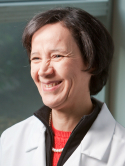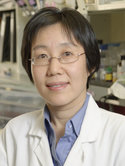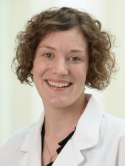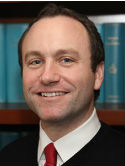Mutation detection in patients with advanced cancer by universal sequencing of cancer-related genes in tumor and normal DNA vs guideline-based germline testing Journal Article
| Authors: | Mandelker, D.; Zhang, L.; Kemel, Y.; Stadler, Z. K.; Joseph, V.; Zehir, A.; Pradhan, N.; Arnold, A.; Walsh, M. F.; Li, Y.; Balakrishnan, A. R.; Syed, A.; Prasad, M.; Nafa, K.; Carlo, M. I.; Cadoo, K. A.; Sheehan, M.; Fleischut, M. H.; Salo-Mullen, E.; Trottier, M.; Lipkin, S. M.; Lincoln, A.; Mukherjee, S.; Ravichandran, V.; Cambria, R.; Galle, J.; Abida, W.; Arcila, M. E.; Benayed, R.; Shah, R.; Yu, K.; Bajorin, D. F.; Coleman, J. A.; Leach, S. D.; Lowery, M. A.; Garcia-Aguilar, J.; Kantoff, P. W.; Sawyers, C. L.; Dickler, M. N.; Saltz, L.; Motzer, R. J.; O'Reilly, E. M.; Scher, H. I.; Baselga, J.; Klimstra, D. S.; Solit, D. B.; Hyman, D. M.; Berger, M. F.; Ladanyi, M.; Robson, M. E.; Offit, K. |
| Article Title: | Mutation detection in patients with advanced cancer by universal sequencing of cancer-related genes in tumor and normal DNA vs guideline-based germline testing |
| Abstract: | IMPORTANCE: Guidelines for cancer genetic testing based on family historymay miss clinically actionable genetic changes with established implications for cancer screening or prevention. OBJECTIVE: To determine the proportion and potential clinical implications of inherited variants detected using simultaneous sequencing of the tumor and normal tissue ("tumor-normal sequencing") compared with genetic test results based on current guidelines. DESIGN, SETTING, AND PARTICIPANTS: From January 2014 until May 2016 at Memorial Sloan Kettering Cancer Center, 10 336 patients consented to tumor DNA sequencing. Since May 2015, 1040 of these patients with advanced cancer were referred by their oncologists for germline analysis of 76 cancer predisposition genes. Patients with clinically actionable inherited mutations whose genetic test results would not have been predicted by published decision rules were identified. Follow-up for potential clinical implications of mutation detection was through May 2017. EXPOSURE: Tumor and germline sequencing compared with the predicted yield of targeted germline sequencing based on clinical guidelines. MAIN OUTCOMES AND MEASURES: Proportion of clinically actionable germline mutations detected by universal tumor-normal sequencing that would not have been detected by guideline-directed testing. RESULTS: Of 1040 patients, the median age was 58 years (interquartile range, 50.5-66 years), 65.3%were male, and 81.3%had stage IV disease at the time of genomic analysis, with prostate, renal, pancreatic, breast, and colon cancer as the most common diagnoses. Of the 1040 patients, 182 (17.5%; 95%CI, 15.3%-19.9%) had clinically actionable mutations conferring cancer susceptibility, including 149 with moderate- to high-penetrance mutations; 101 patients tested (9.7%; 95%CI, 8.1%-11.7%) would not have had these mutations detected using clinical guidelines, including 65 with moderate- to high-penetrance mutations. Frequency of inherited mutations was related to case mix, stage, and founder mutations. Germline findings led to discussion or initiation of change to targeted therapy in 38 patients tested (3.7%) and predictive testing in the families of 13 individuals (1.3%), including 6 for whom genetic evaluation would not have been initiated by guideline-based testing. CONCLUSIONS AND RELEVANCE: In this referral population with selected advanced cancers, universal sequencing of a broad panel of cancer-related genes in paired germline and tumor DNA samples was associated with increased detection of individuals with potentially clinically significant heritable mutations over the predicted yield of targeted germline testing based on current clinical guidelines. Knowledge of these additional mutations can help guide therapeutic and preventive interventions, but whether all of these interventions would improve outcomes for patients with cancer or their family members requires further study. © 2017 American Medical Association. |
| Journal Title: | JAMA - Journal of the American Medical Association |
| Volume: | 318 |
| Issue: | 9 |
| ISSN: | 0098-7484 |
| Publisher: | American Medical Association |
| Date Published: | 2017-09-05 |
| Start Page: | 825 |
| End Page: | 835 |
| Language: | English |
| DOI: | 10.1001/jama.2017.11137 |
| PROVIDER: | scopus |
| PMCID: | PMC5611881 |
| PUBMED: | 28873162 |
| DOI/URL: | |
| Notes: | Maria Arcila's name is misspelled on the original publication -- Article -- Export Date: 2 October 2017 -- Source: Scopus |
Altmetric
Citation Impact
BMJ Impact Analytics
MSK Authors
-
 352
352Coleman -
 228
228Sawyers -
 663
663Bajorin -
 792
792Offit -
 1252
1252Motzer -
 796
796Saltz -
 245
245Nafa -
 684
684Robson -
 785
785Solit -
 263
263Dickler -
 129
129Zhang -
 398
398Stadler -
 978
978Klimstra -
 1336
1336Ladanyi -
 133
133Lowery -
 166
166Yu -
 354
354Hyman -
 346
346Zehir -
 803
803O'Reilly -
 214
214Joseph -
 779
779Berger -
 674
674Arcila -
 1133
1133Scher -
 158
158Abida -
 51
51Mukherjee -
 82
82Salo-Mullen -
 42
42Arnold -
 108
108Kemel -
 36
36Fleischut -
 356
356Garcia Aguilar -
 113
113Cadoo -
 168
168Carlo -
 72
72Shah -
 484
484Baselga -
 53
53Syed -
 189
189Benayed -
 37
37Leach -
 46
46Sheehan -
 13
13Prasad -
 16
16Lincoln -
 156
156Walsh -
 38
38Ravichandran -
 17
17Galle -
 198
198Kantoff -
 187
187Mandelker -
 16
16Trottier -
 17
17Li -
 9
9Cambria -
 15
15Pradhan
Related MSK Work



